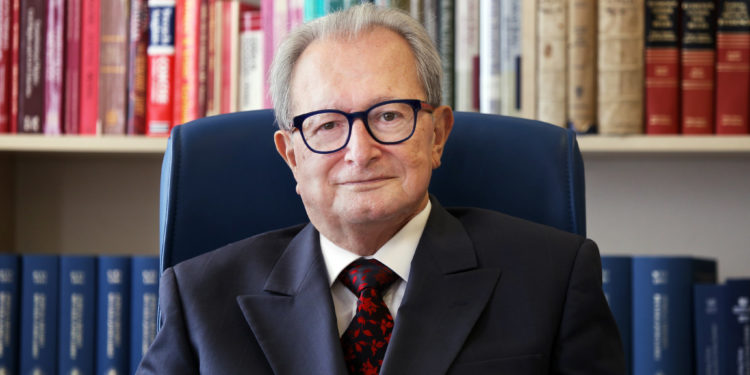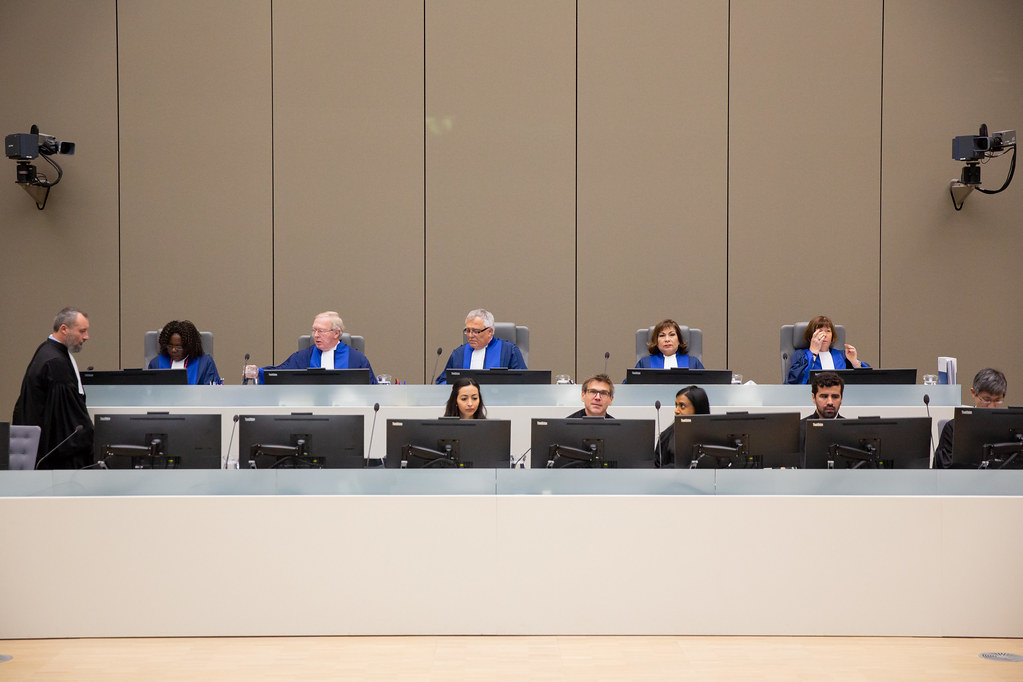By Susan Kendi
The head of a United Nations criminal tribunal has received and dealt with several requests convicts have made for early or provisional release to protect them from potentially getting COVID-19 in the prisons where they are serving their sentences.
The President of United Nations International Residual Mechanism for Criminal Tribunals (IRMCT), Judge Carmel Agius, said this in a May 19 progress report to the United Nations Security Council. He did not give details of how many requests he received or whether he granted or declined the convicts’ requests.
In his report Judge Agius did not refer to a March 27 statement defence lawyers made asking he consider granting early or provisional release to their clients who had served two-thirds of their sentence in order to keep them safe from the spread of COVID-19.
“The COVID-19 pandemic has led to increased activity in relation to enforcement matters. In the past two months, the President has been seized of a number of requests by convicted persons for provisional or early release or similar relief on the basis of the potential spread of COVID-19, most of which have already been disposed of,” said Judge Agius in his report. He delivered it to the Security Council on June 8 via video conference
In the report Judge Agius said the International Residual Mechanism for Criminal Tribunals, or the Mechanism as it is commonly referred to, has a total of 53 convicts under its supervision.
The convicts under the Mechanism’s supervision were sentenced by the predecessor tribunals of the Mechanism, namely the International Criminal Tribunal for Rwanda and the International Criminal Tribunal for the former Yugoslavia. The Mechanism replaced the two tribunals in 2010 after the tribunals had concluded most of their trials and appeals and were left with only a few cases each.
Of the 53 convicts Judge Agius referred to, 50 of them are serving their sentences in 14 African and European countries. He said 18 of the 50 convicts are serving life sentences. The countries where the 50 convicts are serving their prison terms are Austria, Benin, Britain, Denmark, Estonia, Finland, France, Germany, Italy, Mali, Norway, Poland, Senegal and Sweden.
The remaining three convicts are at the Mechanism’s detention facilities in Arusha, Tanzania and The Hague, Netherlands. Judge Agius said the three are waiting either to be transferred to country where they will serve their sentence or for contempt proceedings to conclude before they are transferred from the detention facilities.
Judge Agius said this was not the only measure he took in light of the COVID-19 pandemic.
“In that connection, on 19 March 2020 the President directed the Registrar to contact every enforcement State to request information regarding measures taken to prevent the introduction and spread of COVID-19 in prisons where persons convicted by the two Tribunals or the Mechanism are serving their sentences. All enforcement States have responded to that request,” said Judge Agius.
He said he took a similar step with the detention facilities in Arusha and The Hague that are under the supervision of the Mechanism. Judge Agius said he asked the Registrar to inform him of the measures being taken at the facilities to prevent the spread of COVID-19. He also said that he ordered the Registrar on April 24 to liaise with the countries holding convicts under the Mechanism’s supervision and get fortnightly reports about their prisons and COVID-19. He said he ordered for these reports to continue until the end of June.
Four days before his progress report to the Security Council, Judge Agius set out the procedure for considering whether to give a convict early or provisional release. In his May 15 directions to lawyers Judge Agius said he would make the decision whether to release a convict, after consulting two other judges. He said his decision would be final and not open to appeal. Judge Agius’ May 15 directions were a revision of earlier practice directions the Mechanism had issued.
Other than the 53 convicts under its supervision, the Mechanism is also responsible for nine people who are in limbo because they cannot or are afraid to return to Rwanda. They were tried by the International Criminal Tribunal for Rwanda and were either acquitted or have been released after serving their sentences. Tanzania has allowed them to live in Arusha only until they are relocated to another country.
“The President of the Mechanism again raised this pressing matter in bilateral meetings during the reporting period and the Registrar also continued to explore possibilities and engage with potential receiving States. However, the situation remains unresolved and the rights of those individuals continue to be profoundly affected,” said Judge Agius in his May 19 progress report to the Security Council.







